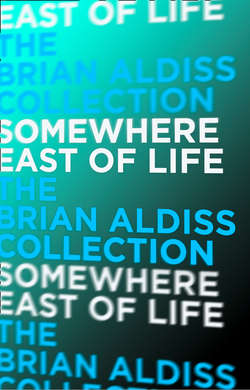Читать книгу Somewhere East of Life - Brian Aldiss - Страница 7
Introduction
ОглавлениеIn this, the final novel of the Squire Quartet, time has moved on slightly.
We meet Roy Burnell beside his friend’s hospital bed. Burnell is employed by WACH, the World Antiquities and Cultural Heritage, which looks after precious things liable to be lost or lost already.
But soon among those lost things is Burnell’s memory. A thief has criminally but adroitly stolen a year of it through an illegal e-mnemonicvision operation.
Burnell has lost twelve vital months of his past. He summons his wife, Stephanie, though memory of her, including all scenes of their love-making, has gone. She comes, and Burnell learns they have been divorced.
E-mnemonicvision is one among the many ‘visions’ generated by technology in this novel. Memories can now be stored electronically and re-used; thieves sell them as pornography.
Partly to escape imprisonment in the present, Burnell accepts a WACH consignment to document an ancient church in Georgia. The church reputedly contains an old and valuable ikon – the Madonna of Futurity.
So Burnell goes to Georgia. Much of it has become a battlefield – ‘Moral emptiness. That’s what the world’s suffering from,’ one character claims.
Burnell eventually finds the ikon. It has been broken into three pieces, all carefully preserved.
For reward, Burnell is sent on a new assignment to Turkmenistan, a place I had never visited. I hired a researcher, who turned up such interesting facts about this little-known country that I determined to go there. It happened that I had a learned friend, Dr Youssef Azimun, who at one time had served as Cultural Director for the new Turkmenistan government, but he had proved so popular that the President – more about him in a moment – had dismissed him. I flew with Youssef and a lady from the BBC called Sue to Ashkhabad, the capital city, almost the only city, since much of Turkmenistan is occupied by the Black Sand – the Kara-kum Desert.
The Soviets had ruled the five trans-Caspian states for nearly seventy years. Now they had gone, leaving behind a strange legacy. After an earthquake in 1948, the Soviets had repaired much of the city of Ashkhabad. Some streets were rather pretty, with rows of small trees and little gutters of water running to cool the temperature. Curiously, the air was full of nostalgic cuckoo calls. Though the Turks were Muslim, after the long Russian stay they downed their vodka like true Moscovites.
Unfortunately – or so I was told – the head of the KGB had stayed on, dubbing himself President, while the KGB rechristened themselves the People’s Popular Party. Plus ça change, etc …
President Niyazov had a gold-plated statue built of himself, which rotated slowly so that it always faced the sun. Though he was clearly dotty, he seemed well-enough liked. He gave the citizens free salt; later free electricity. Yet, there seemed to be no attempt to build up any infrastructure – no hospital, I was told. Instead, a row of five or six hotels, all very similar and all without telephones – vital instruments in the days before mobile phones.
In my hotel room, I had an armour-plated radio. You could tune to two stations, Moscow 1 or Moscow 2.
You had to be eccentric to not grow fond of Ashkhabad.
It was an ideal place for Burnell to operate in.
When Burnell eventually returns to Europe he meets Sir Thomas Squire – now British head of the WACH – in Frankfurt and Squire gives him some good advice – it is his métier: there is something to be said for losing a year of your memory.
We end the Squire Quartet on a note of uncertainty, as we began, with people on the move or disappearing. Just like real life.
One little item happened in Ashkhabad that I found no place for in the quartet, but I have never forgotten it.
The morning was so beautiful and I so young that I got dressed and came downstairs early. At the turn of the stair I met a cleaning woman brushing the steps.
She was withered but she gave me a lovely smile and then uttered the few English nouns she had finally found a use for. Swinging the broom as indicator, she said, ‘The green. The Sky. The sun. The street. The music!’
And that was it. A spirited attempt to communicate.
As is the Squire Quartet.
Brian Aldiss
Oxford, 2012
